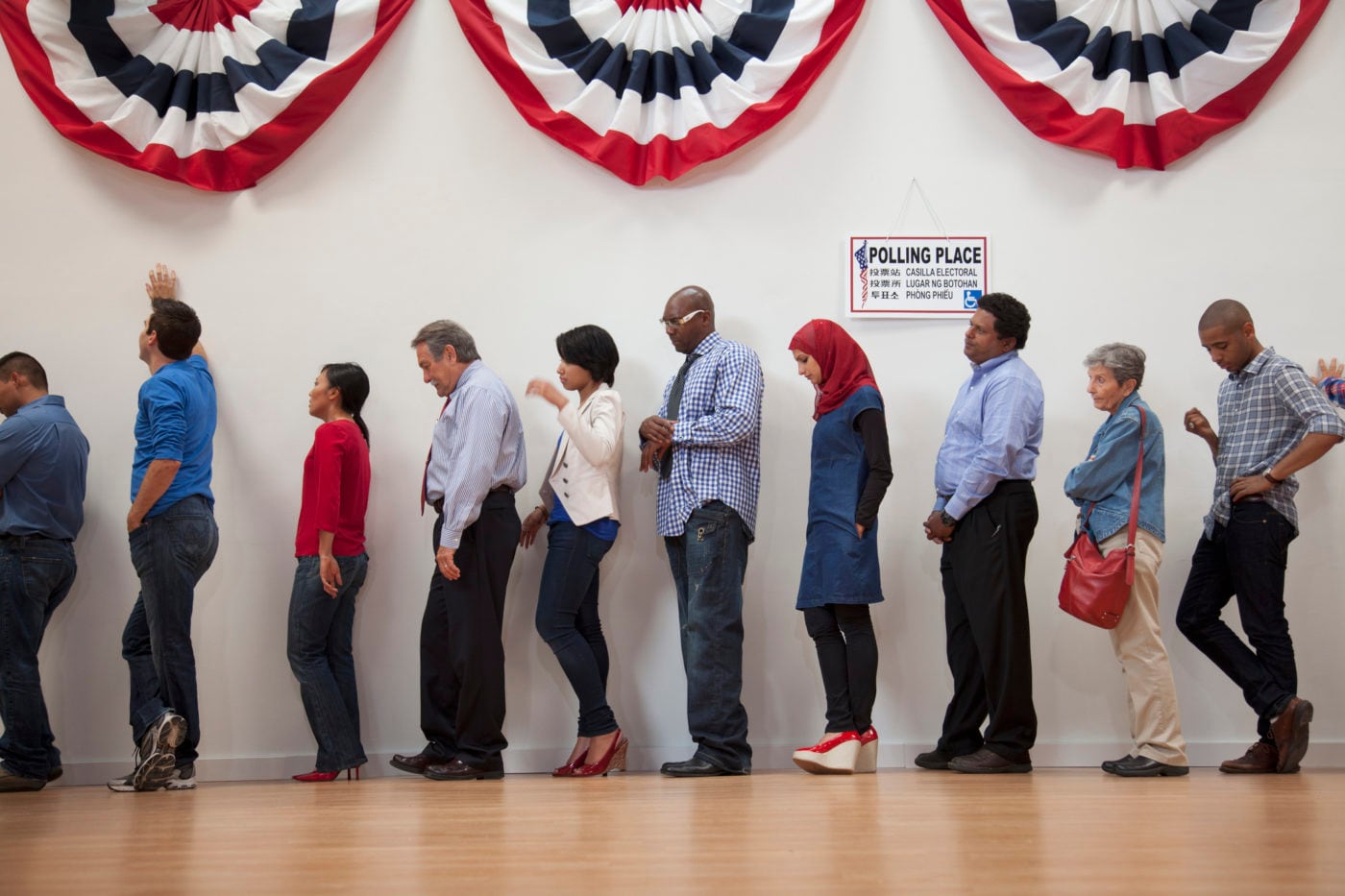Pennsylvania is poised to become another battleground in the growing fight over teaching race and racism in public schools.
Two Republican state lawmakers have introduced legislation that would constrain how schools teach the concept of race — and the conflict over critical race theory, or CRT, will likely become a key part of the upcoming Pennsylvania governor’s race.
That has a coalition of educators and politicians who oppose the efforts to put limits on teachers sounding an alarm. They worry that replacing Gov. Tom Wolf, who is considered a liberal Democrat and is term-limited, with a conservative could be the difference between such a bill passing and being vetoed.
“My fear is that Republicans have already stated publicly that this is what they’re running on in the 2022 campaign,” said Tamara Anderson, one of many local educators organizing against these attacks with Black Lives Matter Week of Action-Philly. “So this isn’t going to just go away, it’s going to continue. How prepared are we on this side, not just to go into battle, but to protect our teachers and our students’ rights? Because that is who they are threatening.”
Most K-12 schools are not actually teaching critical race theory — an academic framework for examining how laws and institutions perpetuate systemic racism. But the term has become a catchall among those who want to limit how schools teach about America’s legacy of slavery and segregation.
House Bill 1532, sponsored by two Republican state representatives, Russ Diamond and Barb Gleim, is the latest attack by conservatives on what they argue is critical race theory being taught in schools. Chalkbeat has tracked at least 27 state-level efforts attempting to restrict educators from discussing systemic racism, critical race theory, and The 1619 Project, which was published by The New York Times and developed by Pulitzer Prize-winning journalist Nikole Hannah-Jones.
The Teaching Racial and Universal Equality (TRUE) Act, as the Pennsylvania bill is called, would limit how schools teach concepts related to racism. In their memorandum, the two lawmakers say schools “should be teaching that every individual is equal under the law and that no individual should ever be labeled superior or inferior simply due to their race or genetic makeup.”
Democrat State Rep. Chris Rabb argues that if Democrats do not have a solid gubernatorial candidate going into the March primary, the debate around teaching race in schools will be a major issue in the race for governor, tilting swing voters.
Wolf, whose term ends January 2023, would turn down such legislation, according to fellow Democrats. But the state has bounced from red to blue leadership — and back — over the last 20 years, so anything is up for grabs next year, including language surrounding teaching race in the classroom.
“If we have a conservative who replaces a liberal Democrat, which I would call Gov. Wolf, then this has the ability to become state law,” Rabb said.
Names floated as possible Democratic candidates for governor include Pennsylvania Attorney General Josh Shapiro and Philadelphia Mayor Jim Kenney. On the Republican side, former congressman Lou Barletta, state Sen. Doug Mastriano, Montgomery County Commissioner Joe Gale and former U.S. Attorney Bill McSwain top the list.
Bartletta and Mastriano, who are staunch supporters of former President Donald Trump, have said publicly they do not support what they believe is critical race theory being taught in school.
“We will never, ever, ever teach critical race theory in Pennsylvania while I’m governor,” Barletta said earlier this month. “We are not going to teach children to hate each other. In fact, we are going to teach them to learn our history and be proud of our country we live in.”
Anderson, the teacher opposing the bills banning CRT, fears the mislabeling of critical race theory by conservatives will ultimately affect curriculum. She says school districts across the state could adopt language from the legislation and ban any teaching of race, including topics such as segregation, redlining, or Juneteenth.
Anderson mentions two events where concerned educators can get involved. National Weekend of Action to Teach Truth is Aug 27-29, led by the Zinn Education Project, Rethinking Schools and Black Lives Matter at School. And Oct. 14 is the national day of action, organized by the National Black Lives Matter at School. The date is George Floyd’s birthday and will address the targeting of teaching about race, Anderson said. Organizers are asking teachers in Philadelphia and across the country to “decolonize their curriculum” — by starting Saturday schools and freedom schools on the weekend, including in states that have banned CRT.
Conservatives pushing anti-CRT bills paint the framework as a threat of sorts against white Americans, said Rabb. Others have raised concerns that, without the proper guidance, academic leaders and politicians can adopt simplistic views of what it means to teach in “culturally responsive ways.”
In Rabb’s view, that is just a ploy to distract voters from other issues such as voter suppression, increasing the minimum wage, and climate change.
“This is a very sexy boogeyman because it hits all the buttons,” Rabb said, adding that the more attention the issue gets, the more likely a critical mass of Americans will believe “critical race theory is divisive as opposed to the racism and sexism that is divisive that critical race theory seeks to address in good faith.”
It’s a bitter irony, said Rabb, “because by embracing critical race theory and embracing diversity perspectives and contributions related to these matters, we can have difficult conversations in good faith to move us forward together as a society.”
But Jay McCalla, a well-known political commentator who served in the administrations of former Democratic mayors Ed Rendell and John Street, told Chalkbeat he doesn’t think critical race theory will be a big issue and will not drive Black voters in Philadelphia, who traditionally vote Democrat.
“I think it matters very much in the Republican Party who beats the drum loudest to back critical race theory, but I don’t think it’s an animating principle for Black voters,” said McCalla, who also served as former managing director for the city “We’re going to be focusing on the Democratic candidate who talks about violence and how he’s got a plan to curb gun violence.”
Pat Christmas, policy director at the Committee of Seventy, an election watchdog group in Philadelphia, says Trump and his politics will also impact the dynamic of the governor’s race.
“I think it’s fair to say his politics are very attractive to some Republican voters across the state of Pennsylvania, but very unattractive to others,” Christmas said. “Whether it’s critical race theory or education funding or election reform and voting rights. All these issues are going to be quite important.”
In the meantime, the local coalition opposing the anti-CRT legislation is also seeking to get Philadelphia’s Board of Education to take a stand, said Adam Sanchez, who teaches social studies at Central High School.
“We want the board to say that regardless of what happens in the legislature, we’re going to continue to encourage our teachers to teach about racism and teach about the truth and the past of this country,” Sanchez says.
The School District of Philadelphia is the only district in the state that requires students to take an African-American history course to graduate.
“These issues will not go away,” Rabb said. “We have to have these earnest discussions because if people think critical race theory is talking about victimization and talking about how white people are inherently bad, that is our point of reference, we’ve already lost the argument.”






